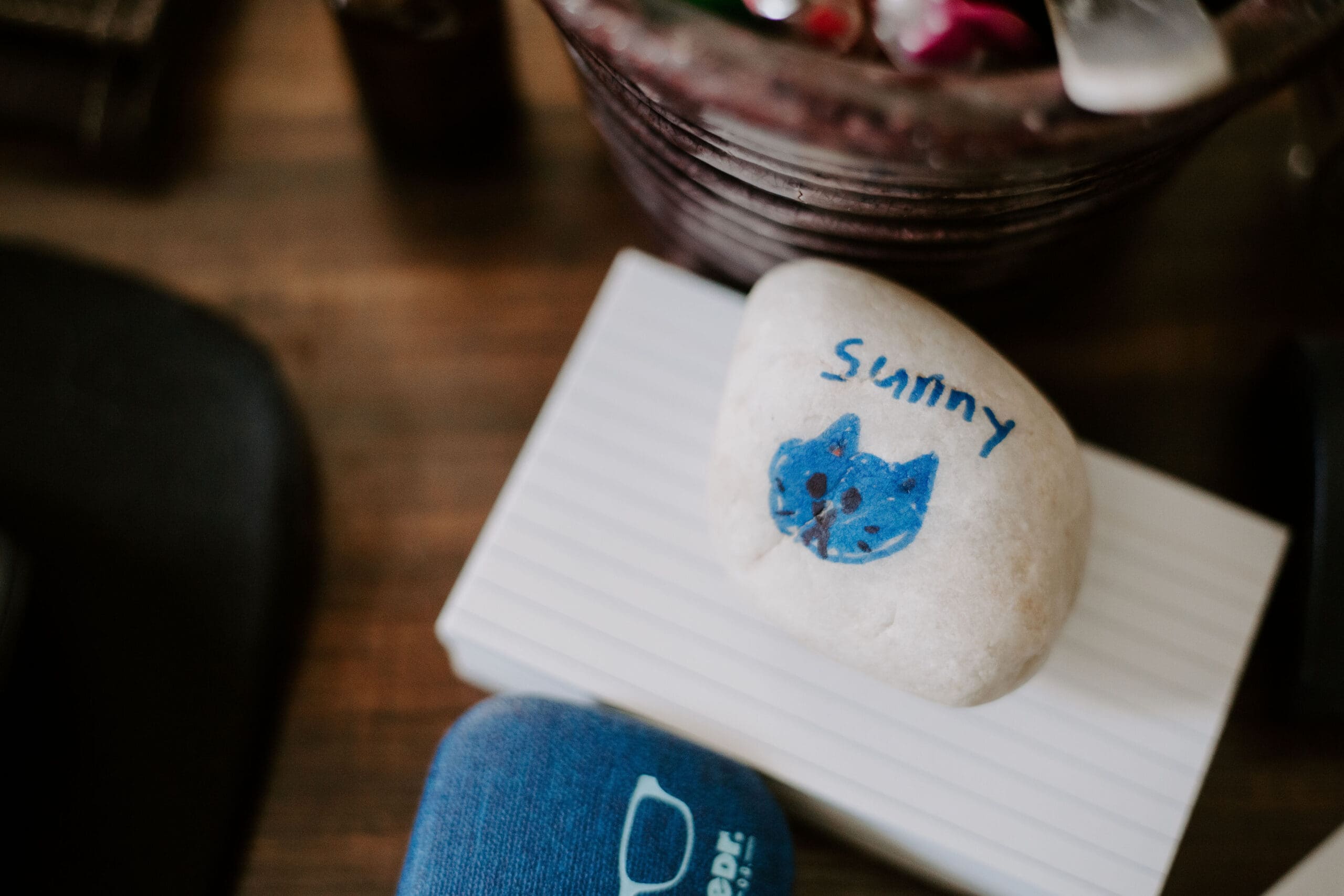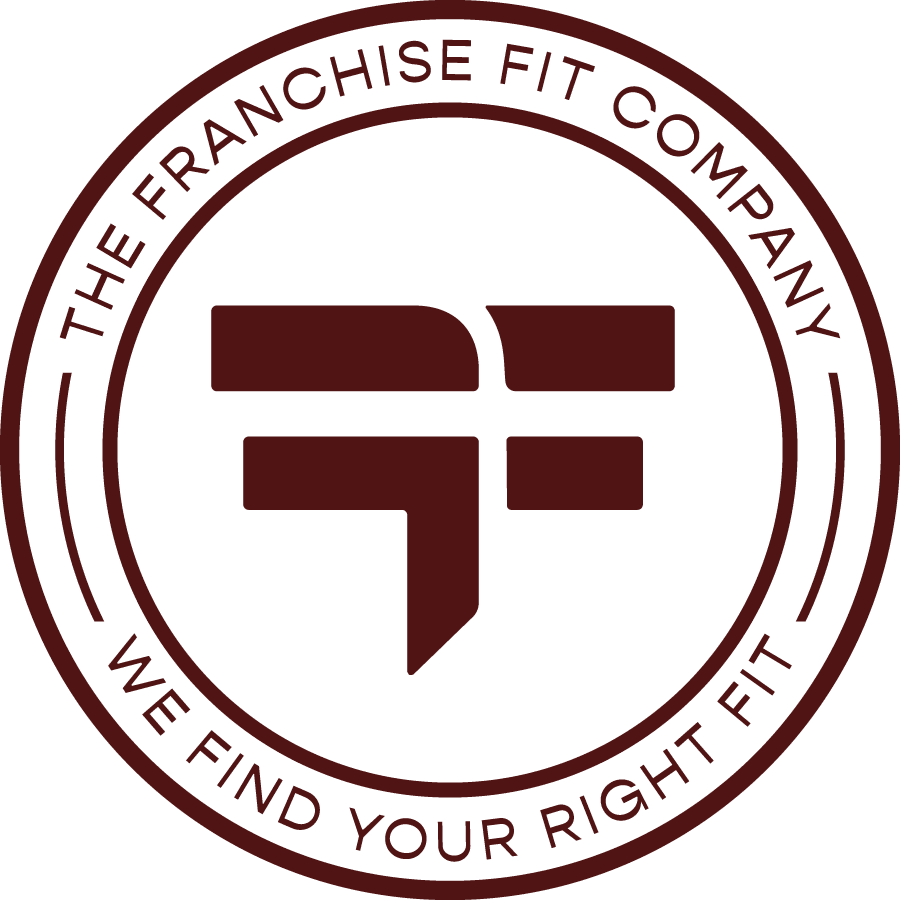on the blog
Read More
Not all silence in franchising is bad.
One of the most common — and legitimate — reasons a franchisor may pause communication or franchise sales is FDD re-registration. Unfortunately, this period is often misunderstood by prospective franchisees and those exploring brands and interpreted as trouble, instability, or worse. Why are they “going dark”? We had to stop the process – is something wrong?
Let’s clear that up.
Not All Silence Is a Red Flag
Every franchisor is required to update and re-register their Franchise Disclosure Document (FDD) annually, typically following their fiscal year-end.
During this compliance window, it’s normal for things to slow down or temporarily stop on the development side of the business.
This is what’s actually happening behind the scenes.
What’s Actually Going On During FDD Re-Registration
Most franchisors must pause franchise sales while their updated FDD is being finalized and approved. During this time:
- Franchise sales pause
- Discovery Days may be delayed
- Development teams go quiet
- No franchise agreements can legally be signed
This isn’t failure or avoidance — it’s responsible compliance.
A franchisor that continues selling during this period is taking on regulatory and legal risk — for themselves and for the prospective franchisee. They officially do not have an active FDD – the old is out and the new is being approved.
Selling franchises with an outdated or unapproved FDD can result in:
- Regulatory penalties
- Buyer rescission rights (the ability to unwind the deal)
- Legal exposure for both parties
That’s why a franchisor who pauses sales during renewal is actually doing the right thing, even if it feels inconvenient or uncomfortable from the outside.
What a Franchisor Updates During FDD Re-Registration
- Financial Statements (Item 21)
This is the backbone of the update.
- Audited balance sheet
- Income statement
- Cash flow statement
Why it matters:
This tells you whether the franchisor is financially healthy, stable, or under strain. It’s one of the biggest reasons sales must pause until renewal is complete. And, all prospective franchisees want updated numbers for their evaluation of the system they are inquiring about. Wouldn’t you want to know what happened last year?
- Franchise System Growth & Turnover (Item 20)
Updated counts of:
- New franchise openings
- Closures
- Transfers / resales
- Terminations
Why it matters:
This shows real system momentum (or contraction). Trends here often matter more than headline brand size. It is important to see sustained growth in the brand with new owners joining and being successful. Is it ok to see a few close – sure – not all reasons are bad. Ideally, you want to see growth, increased sales numbers and a healthy system.
- Litigation & Bankruptcy Updates (Items 3 & 4)
Any new lawsuits, settlements, or bankruptcies involving:
- The franchisor
- Executives
- Parent or affiliate companies
Why it matters:
Prospective franchisees deserve visibility into legal risk before signing. Do all have a clean slate – no, but it is good to understand what is going on with your support system.
- Fees & Investment Ranges (Items 5–7)
These sections may be updated to reflect:
- Fee increases or restructuring
- Changes in required vendors or costs
- Revised working capital assumptions
Why it matters:
Inflation, labor costs, real estate, and insurance changes often show up here. As someone interested in becoming an owner, it is imperative you understand the fees associated with launching and growing a new business. Your financial preparation is a huge factor in success at launch.
- Support, Training, and Operations (Item 11)
Updates may include:
- Changes to training format or duration
- Adjustments to field support
- New technology platforms or systems
Why it matters:
What you’re promised going forward — not what existed two years ago. Part of being in a franchise system is the frameworks, support and coaching you receive. You want to ensure you are getting the infrastructure discussed in the evaluation process.
- Earnings Disclosures (Item 19), If Provided
If the franchisor offers a Financial Performance Representation:
- Data is refreshed
- Outdated performance groups may be removed
- New averages or medians may appear
Why it matters:
This is one of the most scrutinized updates — and one of the most regulated. Franchisors typically only show operating franchise units in the system that have performed for a full 12 months. You will want to see an update snapshot of the system – while only averages, these numbers should improve year over year as the franchise grows.
- Agreement & Addendum Changes (Item 22)
Any changes to:
- Franchise agreement language
- Addendums
- State-specific riders
Why it matters:
Even “small” edits can materially affect exit rights, transfer rules, or obligations.
How to Tell Normal Compliance from Real Trouble
The key difference isn’t silence — it’s communication and continuity.
What Normal FDD Re-Registration Looks Like
- A clear explanation when asked
- A defined (even if flexible) timeline
- Ongoing support for existing franchisees
- Corporate operations continuing as usual
Potential Red Flags to Watch For
- Vague or evasive answers
- Support disappearing for current owners
- No communication or timeline at all
- Leadership exits layered on top of the silence
Silence paired with transparency is normal.
Silence paired with instability is not.
The “Going Dark” Timeline
The short answer: anywhere from a few weeks to several months, depending on where the franchisor sells and how much is updated. Yes, I know – not a clear cut answer.
Here is why:
States are broken into Non-Registration States, Filing States and Registration States.
Registration States (13) – Approximately 4 – 12 Weeks:
A franchise registration state requires:
- The FDD to be filed, reviewed, and approved by a state regulator
- Updates every year (and sometimes mid-year if changes are material)
- Formal approval before franchise sales can resume
- California*
- Hawaii
- Illinois
- Indiana
- Maryland
- Minnesota
- New York*
- North Dakota
- Rhode Island
- South Dakota
- Virginia
- Washington
- Wisconsin
*the slowest and most detailed reviewers. Many times the last states for a franchise to register in. I have seen these take MONTHS! So a franchise sales developer is not pressuring you to sign prior to going dark – they may just not have a clue when it will be available again.
Filing States/Notice Requirements (Not Full Registration) – Approximately 2-4 Weeks:
These states don’t “approve” the FDD but still require notice filings or exemptions that are less restrictive but still regulated, such as:
- Michigan
- Texas
- Florida
- Kentucky
- Utah
- Nebraska
The Bottom Line
The FDD isn’t designed to convince you — it’s designed to protect you and provide you valuable information. You want the MOST UPDATED possible.
The goal in franchising isn’t to find a business with no risk.
It’s to find one where the risks:
- Match your goals
- Fit your lifestyle
- Align with your tolerance for stress
- Support your long-term exit plan
Understanding the FDD — is how informed buyers make confident decisions.
Ok, that was A LOT of information. Want to discuss in more detail? Jump on my calendar and we can debrief. My goal is not to “sell” you – it is to educate you so you can make the best decision for your future. Your success in franchising is my success! *I am not a lawyer and will not provide legal advice or representation.

Read More
What It Includes, What to Watch for, and What to Focus On
Buying a franchise isn’t about picking a logo or a brand name (yes, I sound like a broken record) — it’s about understanding risk, responsibility, and fit. The most important document in that process is the Franchise Disclosure Document (FDD).
Yet many buyers:
- Don’t know what the FDD actually contains
- Focus on the wrong sections
- Get overwhelmed!
Let’s break this down clearly and practically.
What Is the Franchise Disclosure Document (FDD)?
The FDD is a legally required disclosure document regulated by the Federal Trade Commission. Its purpose is not to sell you a franchise — it is to disclose risks, obligations, and realities before you sign anything. When speaking with a franchisor, they must disclose you of this document and there is a mandatory (review) period before you can sign any franchise agreement. The 14-day rule: once the franchisor delivers the FDD, typically through DocuSign, the clock starts. You CANNOT sign the franchise agreement, sign any binding agreements or pay a deposit or initial fee until that time has passed. Also there is the the 7-day rule: once you receive the final franchise agreement (written for YOU) after the FDD was delivered, you must have at least 7 calendar days to review the final version before signing.
Who enforces this, you ask? The Federal Trade Commission.
Every franchisor must present the FDD in the same format, consisting of 23 required sections (“Items”).
The FDD Sections That Matter Most (and Why)
While all 23 items matter, not all deserve equal attention. Here’s how to read the FDD like an informed buyer — not a hopeful one.
1. Who You’re Partnering With (Items 1–4)
These sections explain:
- The franchisor’s history and structure
- Leadership experience
- Litigation history
- Bankruptcy disclosures
What to look for:
Patterns, not perfection. One lawsuit isn’t alarming — repeated disputes, leadership turnover, or unresolved litigation can be.
2. Your True Financial Commitment (Items 5–7)
This is where many buyers underestimate risk.
- Item 5: Initial franchise fees
- Item 6: Ongoing royalties, marketing fees, technology fees
- Item 7: Estimated total investment range
What to look for:
- Is working capital realistic for your lifestyle and household needs?
- What assumptions drive the low vs. high investment range?
- Are vendors required — and who controls pricing?
Item 7 is not a guarantee. It’s a starting estimate, not your final cost. Remember the Item 7 is not going to include your first year salary (if you want to pay yourself while starting), manager salary (if you want to start this with leadership in place), etc. These numbers will get your business open, serving customers and some operational capital in the bank.
3. Control, Territory, and Competition (Items 8–12)
These sections define how much autonomy you truly have.
- Territory protection (or lack of it)
- Supplier requirements and rebates
- Franchisor support and training
- Whether the franchisor can compete with you directly
What to look for:
- Vague territory language
- E-commerce or national accounts selling into your area
- Heavy control without corresponding support
4. Lifestyle Expectations and Exit Strategy (Items 15–17)
These items are often skipped — and later regretted.
- Owner participation requirements
- Renewal terms
- Transfer and resale restrictions
- Non-compete clauses
What to look for:
If you can’t clearly explain how you exit, you’re not ready to enter.
5. Performance and System Health (Items 19 & 20)
These two sections should always be reviewed together.
- Item 19: Financial Performance Representations (earnings claims — optional)
- Item 20: Number of franchise openings, closures, and transfers
What to look for:
- Are top performers the only ones represented?
- Are closures increasing year over year?
- Do validation calls support what’s shown on paper?
Context matters more than averages. All of these numbers need to be validated during the next phase of exploration: VALIDATION. Oh – and more on The ITEM 19
What Buyers Should Focus on Most
If you’re short on time, prioritize:
- Item 7 — Capital and cash runway
- Item 11 — Ongoing support after launch
- Item 12 — Territory and competition
- Item 17 — Exit and transfer rights
- Item 19 — Earnings logic
- Item 20 — Franchisee turnover and system health
Check out more Franchise Disclosure Document Blogs:
Should I get an Attorney to Review the FDD?
What does “Going Dark” mean?
This is A LOT of information to tackle on your own – when you are ready for a full tour guide on this process (for free) – let’s schedule time: Calendar

Read More
The “Day-in-the-Life” Conversation
Your first priority is understanding the reality of the role—not the brochure version. You’re not just buying a brand. You’re buying a job description for yourself for the next 3–10 years. This is the time to understand what is required of the owner to be successful and does this truly FIT your expectations of day to day involvement.
Sample Questions To Ask:
- “What does a typical day look like for you from start to finish?”
- “How much of your time is spent on sales, operations, people management, and admin?”
- “What are the 2–3 tasks you personally can’t delegate right now?”
- “If someone shadowed you for a week, what would surprise them the most?”
What you’re listening for:
- Does their day align with how you actually want to spend your time?
- Are they mostly in the field? In the office? Networking? Hiring and coaching?
- Are they doing work that plays to your strengths—or your weaknesses?
If their day sounds like a life you would dread, it’s a sign the model might be fine, but the fit is wrong.
The Ramp-Up & Learning Curve Conversation
The second conversation is about how hard it really is to get from zero to functioning.
Sample Questions To Ask:
- “How did your first 6–12 months go compared to what you expected?”
- “What were the hardest parts of getting started—licenses, hiring, learning the systems, something else?”
- “How long did it take before you felt confident and not constantly in ‘figure it out’ mode?”
- “If you were starting again, what would you do differently in your first 90 days?”
What you’re listening for:
- Are owners consistently saying, “It took longer than I expected”?
- Were there surprises the franchisor should have prepared them for?
- Does the learning curve match your tolerance for discomfort and chaos during that first year?
You want honest stories, not just timelines. That’s where the truth lives.
The Financial Reality (Without Being Awkward) Conversation
Money questions feel delicate, but you can absolutely have them without asking for someone’s P&L. It is important how you ask questions too. Remember everyone comes from VERY different backgrounds – keep the questions simple.
Sample Questions To Ask:
- “Did your actual numbers roughly match what you saw in the FDD or were you above/below?”
- “What is your average job ticket price?”
- “What are your big monthly expense items to run the business”
- “Knowing what you know now, would you have come in with more capital?”
- “Have you been able to pay yourself? If not yet, when do you think you will?”
What you’re listening for:
- Are owners consistently under- or over-performing what’s represented?
- Is there a theme around underestimating working capital?
- Are they proud and confident talking about the financial trajectory, or hesitant and vague?
You’re not looking for exact dollar amounts. You’re looking for patterns and ranges—and whether this opportunity fits your reality and risk tolerance. Remember you are in control of making financial decisions for YOUR business. Get the back of the napkin numbers – job revenue, expenses…boom, you have some margin and then you know your debt.
The Franchise Support & Relationship Conversation
A strong brand isn’t just a logo—it’s the support system behind you.
Sample Questions To Ask:
- “How would you describe your relationship with the franchisor?”
- “When you run into an issue, how responsive is the support team?”
- “What kind of help do you realistically get with marketing, operations, and training?”
- “Have you ever felt like the franchisor wasn’t listening? How did they respond?”
- “How much do you engage with other owners?” “Are they supportive?”
What you’re listening for:
- Is there a culture of partnership or policing?
- Do owners feel heard or brushed off?
- Are they excited about where the brand is going—or worried?
If multiple owners use words like ignored, slow, frustrating, pay attention. Support doesn’t magically get better after you sign.
The Customers & Lead Generation Conversation
No leads = no revenue, no matter how great the brand looks on paper.
Sample Questions To Ask:
- “Where do most of your customers really come from—corporate marketing, your own networking, referrals, something else?”
- “How effective has the franchisor’s marketing been in your market?”
- “What marketing activities do YOU do that move the needle the most?”
- “Have there been any big shifts in demand or competition since you started?”
What you’re listening for:
- Is the brand marketing engine actually helping—or is it mostly on the owner?
- Are there specific tactics that consistently work across owners?
- Is demand stable, growing, or shrinking in different markets?
This is where you separate hype from what actually drives business. Please note, YOU are responsible for your local marketing. All owners will complain about lead flow – what are they doing about it from all angles is important to understand.
The Challenges, Regrets & “Real Talk” Conversation
This might be the most valuable conversation you’ll have if you ask the right questions and then stop talking.
Sample Questions To Ask:
- “What’s the hardest part of this business that no one prepared you for?”
- “Have you ever seriously considered selling or walking away? What triggered that feeling?”
- “What do you like least about being part of this franchise system?”
- “If someone you loved was considering this brand, what warning would you give them?”
What you’re listening for:
- Common pain points: hiring, margins, burnout, competition, support gaps.
- Signs of misalignment between what was sold and what was experienced.
- Whether the challenges are things you can live with—or not.
No franchise is perfect. You’re not looking for a brand with no problems. You’re looking at whether the problems are acceptable trade-offs for the opportunity.
The “Would You Do It Again?” Conversation
This is the ultimate gut-check question.
Sample Questions To Ask:
- “If you could go back in time, would you buy this franchise again?”
- “Would you choose the same brand—or a different industry/model?”
- “Would you pick the same territory or market?”
- “What kind of person do you think truly thrives in this system?”
What you’re listening for:
- Their first reaction—a quick “Yes, 100%” sounds very different from a long pause.
- Subtle hesitations like, “Yes, but…” or “Probably, if…” — those “buts” matter.
- Their description of who thrives—does that sound like you?
This is where you often get the most honest, distilled perspective: regrets, gratitude, pride, frustration—all in one.
How Many Owners Should You Talk To?
As a rule of thumb:
- Average: 3–5 owners
- Ideally: A mix of:
- High performers
- Average performers
- Newer owners (in first 1–2 years)
- More mature owners (3+ years in)
You want to see the whole spectrum, not just the “highlight reel” you’re introduced to. And, have a purpose for each call. If you are trying to talk to everyone to build a case NOT to do it – you are taking the wrong approach. Get your concerns alleviated or proved.
Bringing It All Together
Talking to existing franchise owners is not about getting one perfect answer that tells you “yes” or “no.”
It’s about:
- Spotting patterns across multiple conversations
- Checking those patterns against who you are and what you want
- Confirming whether this franchise is the right fit—not just a recognizable logo
The Franchise Fit Company is here to help you navigate, explore and ask the right questions. Book Time: Calendar

Read More
Franchising has a few stigmas. It is all about fast food, it is not sexy and it is often seen as a shortcut to entrepreneurship—a ready-made business with brand recognition and a roadmap for success. While that’s partly true, there are plenty of misconceptions that can mislead potential franchisees and even eliminate people from considering this route to business ownership.
If you’re thinking about investing in a franchise, it’s crucial to separate fact from fiction. Let’s do some myth busting!
Myth #1: Franchising is EASY Money Guaranteed!
Truth: Franchising can be profitable, but it’s not a guaranteed cash machine. You still have to work hard, manage people, market your business, and solve daily problems. Think of it as owning a business with training wheels—you’re still riding the bike and there are bumps in the road. Heck, you can still fall off.
Success takes time, effort, and financial patience. Many franchisees work longer hours than they did in corporate roles, especially in the early years. You get out what you put in! In this situation, you are not sitting at your corporate desk waiting for your bi-weekly paycheck to hit the bank. If you don’t show up, neither does payroll.
Myth #2: You Don’t Need Business Experience
Truth: While many franchises are designed to train newcomers, having business, leadership, or customer service experience can be a huge advantage. You’ll need to make financial decisions, manage teams, and lead operations. Franchises like to train new owners on the concept and business-type (where no experience is needed) but you need to have a basic understanding of what levers to pull even when coaching is provided.
Franchisors give you the system (aka “playbook”), but they don’t run the business for you.
Myth #3: You’re Just Buying a Job
Truth: It can feel that way—especially if you’re an owner-operator working full-time in the business. But many franchisees grow to own multiple units or hire managers to create more passive income over time. Some love working “in” the business because they see the fruits of their labor. Others hustle to work “on” the business to grow into a more general manager/executive type role. This goes back to our goal of finding YOUR fit – your involvement will be different based on the franchise of interest.
You’re building an asset, not just trading hours for dollars—if you treat it like a real business.
Myth #4: The Franchisor Will Handle All the Marketing
Truth: While franchisors provide national marketing campaigns and brand tools, local marketing is often up to you. That means community outreach, networking, promotions, and managing your own local social media. The corporate franchise office is not going to come and sponsor your son’s little league baseball team. That is the local marketing engagement required of a local owner. Funny, I never thought of a franchise as being “locally-owned” but IT IS!
Local visibility = local responsibility. Successful franchisees are proactive marketers.
Myth #5: All Franchises Are Expensive
Truth: Not all franchises require a million dollars to start. There are lower-cost options especially in the non-brick and mortar space – services. Hundreds of options exist beyond your typical brick and mortar business and way beyond fast food. Think home services, senior care, education, consulting…the list goes on!
Franchising isn’t just for the wealthy—it’s for the resourceful. Most franchisees finance their franchise through SBA and ROBS offerings.
Myth #6: You Have No Freedom as a Franchisee
Truth: Franchises come with rules—but you still have autonomy over how you run your day, manage your team, and grow your business. Some industries are stricter than others (e.g., fast food), but many franchises encourage owner creativity—within guidelines. Believe me, no one was in my office telling me how to run my franchise.
You give up some flexibility for brand consistency—but gain support and proven systems.
Myth #7: If a Franchise Brand Is Popular, It Must Be a Good Investment
Truth: Just because a brand is well-known doesn’t mean it’s the right fit for you or your market. High brand awareness often comes with high fees, saturated markets, and tough competition.
Due diligence matters more than popularity. Look at unit performance, support quality, and franchisee satisfaction before signing anything. Also known, as Find Your Fit.
Myth #8: Franchising Is Only for Food Businesses
Truth: While food franchises are common, franchising spans dozens of industries, including:
- Fitness
- Home repair
- Child education
- Health & wellness
- Pet care
- Automotive
- B2B services
Many of these services you may have used and NEVER knew it was a franchise. When you start looking, you will be surprised how many are at your fingertips.
There’s a franchise for nearly everything!
Myth #9: You’ll Be Profitable in a Few Months
Truth: Some franchisees take a year or more to break even. It depends on the industry, your location, your skill, and how aggressively you market and operate. If you are operating on a part-time, semi-absent basis, expect it to take longer.
Plan for a slow ramp-up and have enough working capital to get through it. It is HARD – no one said it was gonna be easy.
Myth #10: Franchising Isn’t Real Entrepreneurship
Truth: You may not be inventing a product from scratch, but you are building, leading, and taking risks like any entrepreneur. You make hiring decisions, manage finances, grow revenue, and adapt to your local market. At the end of the day, that business belongs to YOU and the success is on YOU too. As the owner, you pull all the levers.
Franchisees are entrepreneurs—just with a head start.
Final FIT Thoughts
Franchising is a powerful business model—but only if you walk in with clear eyes. Don’t let the myths cloud your judgment or lead you into a situation you’re not prepared for.
Take your time, do your homework, and talk to real franchisees. The more you learn, the better prepared you’ll be to turn your investment into a thriving, long-term business.AND, partner with an experienced franchise coach, like The Franchise Fit Company to help you navigate, explore and ask the right questions. Your third party and extra set of eyes-our goal is to find your right fit, not SELL you a franchise. Contact Us

Read More
When you’re researching franchise opportunities, one of the most anticipated sections of the Franchise Disclosure Document (FDD) is Item 19: Financial Performance Representations (FPRs). This is where franchisors may (but are not required to) share historical revenue, expense, or profit data from their franchise system.
On the surface, it feels like the holy grail of decision-making—finally, some numbers. But here’s the reality: relying solely on Item 19 to decide whether to buy a franchise is a mistake. This document is the epitome of comparing Apples and Oranges!
Sit down for this one…here is why:
1. Not All Franchisors Provide the Same Information (Not Kidding!)
Franchisors are not required to include Item 19 but they do because it helps sell licenses. Some provide detailed financials, while others give partial or limited data (e.g., gross revenue averages without expenses). You might be looking at a “best-case scenario” instead of a complete financial picture. “It’s like a box of chocolates…”
2. Averages Tell You What? Not much.
Many Item 19 disclosures are based on averages, which can be misleading. An “average” can be skewed by a handful of top-performing franchisees, while the majority may be operating below that number. Without context, the average can set unrealistic expectations.
3. Expense Data – Absent.
Even when revenue is disclosed, net income is rarely shown. Item 19 often leaves out critical costs—rent, labor, marketing, or debt service—which directly impact what you take home. High revenues don’t equal high profits. Oh but wait, what one owner expenses is wildly different from another owner. We are over here expensing home improvements and another person is expensing their new Audi. See my blog featuring Net Income – that is another story for another day.
4. The numbers are HISTORY!
The numbers in the Item 19 are historical data points. They are not futuristic. They are not current year-to-date. They do not represent the current market landscape. The numbers are completely a reflection of the previous year’s performance by owners that were operating a full calendar year prior to updating the FDD (yearly occurrence).
5. Performance Depends on You – And that is a FACT!
Yes, I mean to tell you that just because this is a franchise, it does not mean you automatically make money! Sorry. Your results won’t just depend on the franchise brand, it will depend on the location, market size, your management style, and your ability to execute the model too. Item 19 can’t tell you how well you will perform—it only shows what others have done under different circumstances.
6. There is Gold in Validation
Numbers are important, but the real insights come from conversations with existing franchise owners. They’ll tell you what margins look like, what unexpected expenses come up, and how long it took them to cover expenses monthly, operate in the “black” or hit break-even. Validation calls reveal the day-to-day realities that Item 19 cannot capture. In essence, we can break it down to simple math: how much does it cost to run the business monthly (without bells and whistles) and how much does the average ticket bring in…pull your napkin out and see how many customers you need to breakeven monthly. Can you do it PLUS some?
As for Validation, we can talk later about how to manage validation calls and pull out the data to use in how YOU will operate. Remember, you are going to run the business and it may not be exactly like them. Can you get excited about the typical day-in-the-life?
FIT TIP: Item 19 is a useful tool, but it’s only one piece of the puzzle. Don’t let it be the deciding factor. Pair it with thorough validation, market research, and an honest evaluation of your goals and resources – Find Your Fit and that will show you the money!
Ready to Find Your Fit? Contact Us


Read More
One of the most common questions or requirements I hear from people exploring business ownership is: “Can this franchise replace my salary?”
It’s an understandable question — after all, most of us are conditioned to measure career success in terms of our paycheck, job offer and yearly raises. But here’s the truth: replacing your salary is only one piece of the puzzle, and focusing solely on it can cause you to miss the bigger picture of what business ownership offers.
Business ownership – you are in control. You define your paycheck! Let’s jump into helping you have a different perspective:
1. Salary Is Not Take-Home Pay
Many people think in terms of their gross salary, not their actual net income. “I make $180K a year!” No you don’t! Taxes, healthcare costs, retirement contributions, and other deductions mean your “salary” isn’t the same as the money hitting your bank account. When you consider franchising, the better question is: “How much do I actually need to run my household and live the life I want?” That number is often different — and sometimes lower — than the offer letter or raise in salary you’ve been chasing.
2. Salary Is About Today — Ownership Is About Tomorrow
A corporate salary is predictable, but it ends the moment you leave. A franchise, on the other hand, is an asset. You’re not just building income for yourself today; you’re building equity in a business you can grow, scale, pass on or eventually sell. That long-term wealth creation goes far beyond “salary replacement.” Remember, you are in control of the business. You determine your raise and income based on what you put in and want out. This is a big change in mindset!
3. Flexibility and Control Matter Too
Think about why you’re exploring franchising in the first place. Chances are it’s not just about money. If it is – this isn’t a “get rich scheme”! It’s about controlling your schedule, creating more time for your family, or aligning your work with your personal values. These intangibles don’t show up in a salary comparison, but they’re often the reason people make the leap. What are these important factors worth to you? There is value and trade-offs in what you are searching for – only YOU can determine how this plays into your search decisions.
4. Risk and Reward Look Different
Your paycheck feels safe, but it can disappear with a layoff, restructuring, or merger. Franchising involves risk too — but it also gives you the ability to influence your results. Instead of hoping someone in a boardroom makes a decision that protects your job, you’re in charge of driving your own success. When you wake up each day, you make the decision on how hard you work, what you focus on and what happens in the business. I have not found one business owner to-date that has fired or laid themselves off.
5. Wealth Isn’t Just Income — It’s a lifestyle of YOUR choice
When you build a franchise, you’re investing in something that has resale value or legacy for your kids. Many owners exit their businesses with a multiple of annual profits — something no salary will ever give you. Added Plus, the lifestyle benefits of business ownership (flexibility, freedom, fulfillment) add a dimension of wealth beyond dollars and cents. The value I place on time is much greater than when I was trying to climb the ladder of success. At the end of the day, who really cared about title and role – Oh, it was me! My family on the other hand cared if I was present or not.
6. It’s About Return on Life as Much as Return on Investment
If your only measure of success is whether the franchise replaces your old paycheck, you’re applying an employee mindset to an ownership opportunity. The real question is:
- Does this business align with the life you want to live?
- Does it give you the opportunity to create wealth, not just income?
- Does it help you define success on your own terms?
Fit Tip: Replacing your salary might be the starting point in your franchise search, but it shouldn’t be the finish line. Salary is a single number without meaning. Ownership is a whole picture — financial, personal, and lifestyle — that can transform the way you work and live.
I only wish I could explain the feeling of being on the other side. It is a journey each person must take individually and for their own reasons!
If you’re exploring franchise ownership, I’d love to share what I’ve learned—and help you find the path that’s truly the right fit for you.

Read More
I took over an existing franchise for almost zero investment—literally just opened a bank account and added some operational funds. Yes, these opportunities exist. Sometimes, an owner is ready to move on, and you can get a steal of a deal.
But let’s be clear: nothing is ever truly free.
What I inherited:
- A business that had once grossed over $1M annually
- At takeover, it was bringing in ~$40K/month and declining
- 8–10 staff members, solid customer accounts, 2 office locations, and all the equipment and supplies
Sounds great, right?
Well, here’s what I actually found:
- Jobs were severely underpriced—no profit in sight, lots of “friends and family” discounts
- A team with poor attitudes and little accountability—zero leadership, zero quality control
- No GM in place (and I had planned on running this semi-absentee)
- Marketing? Nonexistent for the last 6–8 months
- Leads weren’t being worked, and new business came solely from word-of-mouth
So yes, I got a deal—but it came with surprises.
What I did next:
- Cut the business in half within 60 days—raised prices, lost some customers, but that was OK
- Addressed the team—some left, others were let go. Also OK
- Promoted a manager to oversee the day-to-day
- Restarted marketing efforts
It still took over a year (and a lot of trial, error, and tough calls) to turn a profit.
Lesson: Buying in doesn’t guarantee a head start. You must dig in, evaluate thoroughly, and be ready to do the work.
Starting a Franchise from Scratch
In contrast, my husband and I launched a brand-new franchise location together—and the difference was night and day.
With strong franchise training, a detailed launch plan, and ongoing support, we were able to:
- Make every decision with intention
- Shape the customer experience from day one
- Stay laser-focused on margin and quality
Within six months, we were closing projects, protecting our profits, and putting money back in the bank.
Yes—it was still work. But when you’re aligned with a franchisor that has proven systems, real support, and a solid structure, starting from scratch doesn’t have to be scary.
Moral of the story:
Whether you buy existing or build new, the right FIT matters.
Know your strengths, understand the work required, and partner with a brand that aligns with your goals.
If you’re exploring franchise ownership, I’d love to share what I’ve learned—and help you find the path that’s truly the right fit for you.

